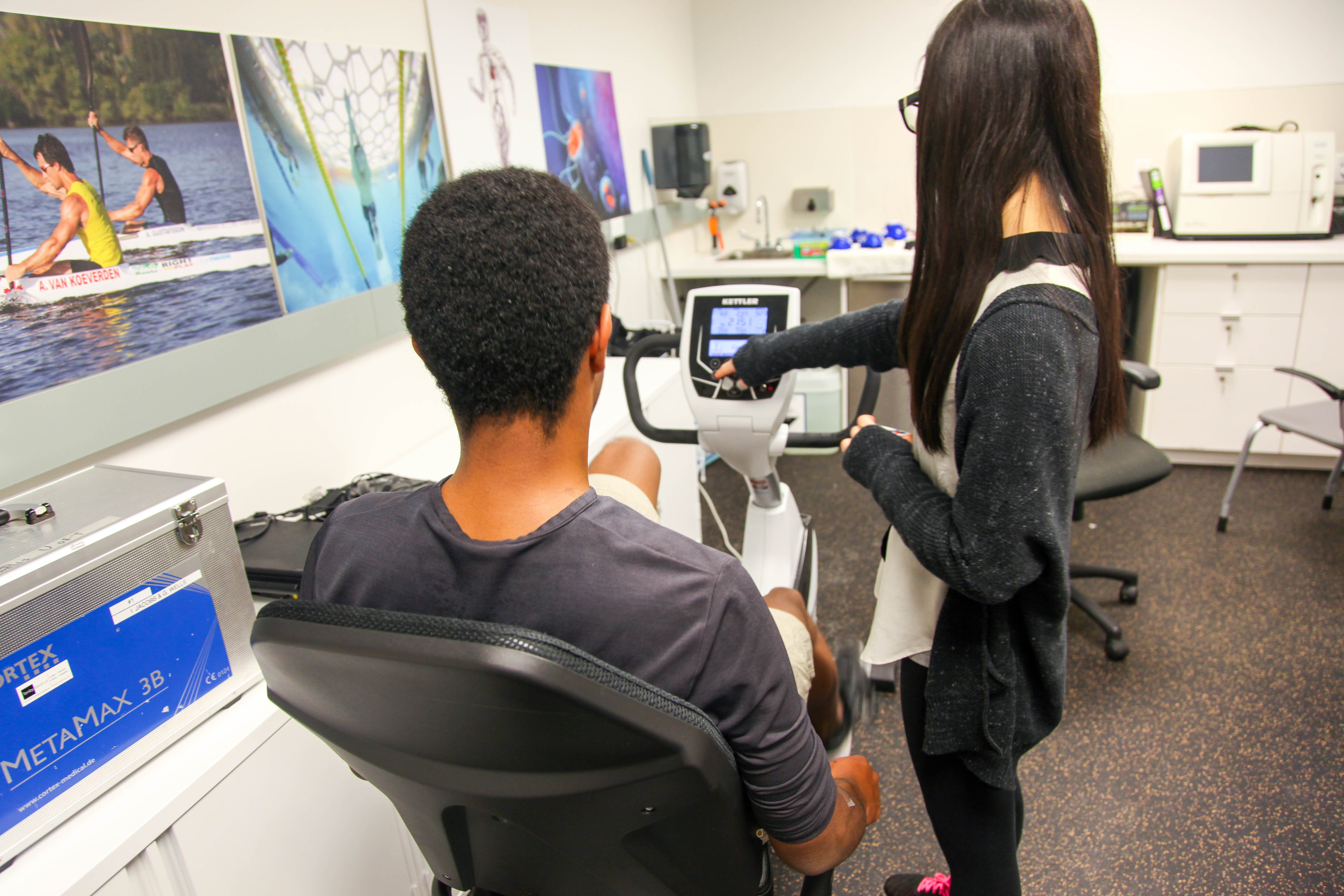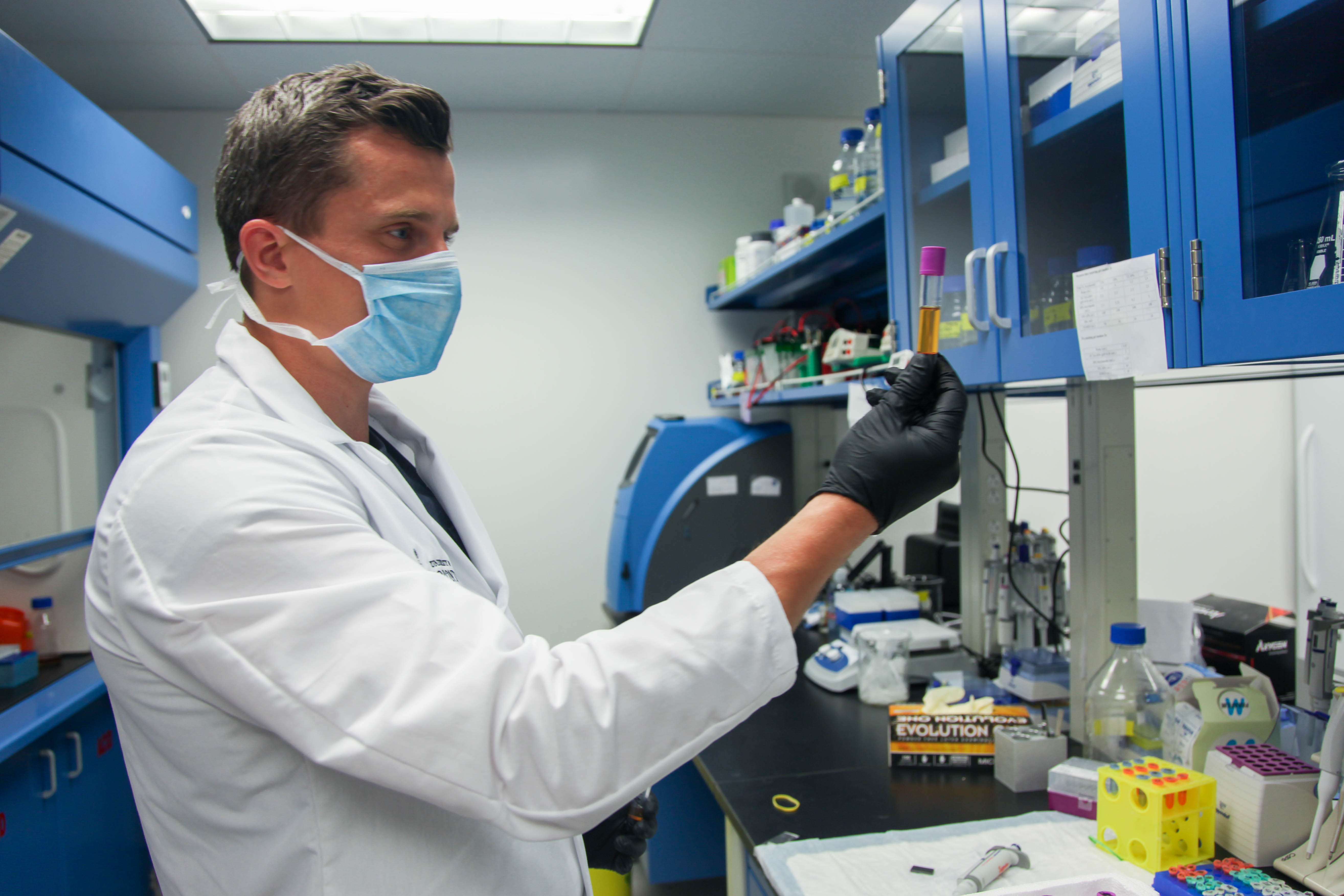Healthy Kids Q&A
Healthy Kids Q&A challenges some common assumptions about child nutrition and health. In the first two parts of this series, learn about recent nutrition research at the University of Toronto on exercise and appetite.
Is exercise only part of the equation?
Understanding the impact of exercise on food intake among young boys

Health professionals commonly prescribe exercise alone or in combination with a change in diet as treatment for obesity and overweight. However, the reality is that the effects of exercise on appetite suppression are not well understood. Sascha Hunschede, a fourth year PhD candidate at the University of Toronto, describes the research he’s conducting under the supervision of Dr. Harvey Anderson.
The Joannah & Brian Lawson Centre for Child Nutrition: Many people assume that exercise, paired with a balanced diet, is one of the most effective ways to treat overweight and obesity, but your study is suggesting that there’s more to it.
Sascha Hunschede: The truth is, despite all the information available right now, we just don’t know that much about how exercise influences how much we eat, especially when it comes to young children in their years of major growth and development. Based on previous studies, we are just starting to understand how habitual exercise can help to regulate appetite and food intake more adequately, which should then result in weight loss, but we’re now realizing that this equation is much too simple. My research in particular, is focusing on an effect called “exercise induced anorexia”, which describes a brief suppression of appetite and food intake shortly after exercise at high intensities.
Lawson Centre: It sounds like the more we learn, the more questions we have to ask. So what question does your research hope to answer?
Hunschede: Over the course of three studies, I’m investigating how acute appetite and food intake is affected by exercise as well as glucose and protein intake in lean and overweight boys aged 10-18. I am particularly interested in specific inflammatory markers that occur during exercise. In general, I’m hoping to determine how to improve appetite regulation and so improve the overall health of children, into adulthood.
Lawson Centre: Why does your research only focus on young boys? 
Hunschede: Good question. Actually, the decision to focus on boys, and within this age range, is based on the fact that we will be able to make comparisons with previous studies that have focused on adolescent boys. Also, we considered the fact that young girls around this age would be experiencing a number of reproductive changes that we just couldn’t account for adequately in this study.
Lawson Centre: At the end of the day, how do you think your research will help families and their kids?
Hunschede: If we can get a bigger picture of how exercise impacts appetite suppression and food intake, we can apply exercise better for young children - both boys and girls. For example, our improved understanding could lead to school policy changes that schedule exercise before lunch or at certain times of days. I can also see weight-management camps for kids taking note of the findings from this research to implement similar changes in their programs. Farther down the road, perhaps the outcomes from these types of studies will guide pharmacology in developing more effective treatment for the overweight and obese.
Do adolescent boys just have large appetites?
Determining the relationship between testosterone and food intake in young boys
Studies have shown a significant decline in testosterone level in adult males following high glucose consumption. However, a similar effect among adolescent males has yet to be determined. There is also a lack of understanding about the effects of testosterone level on a young boy’s appetite and food intake. Alexander Schwartz, a fourth year PhD candidate at the University of Toronto, describes the research he’s conducting under the supervision of Dr. Harvey Anderson.
The Joannah & Brian Lawson Centre for Child Nutrition: One of the assumptions many people make about young boys is that they have large appetites, which only increase the closer they get to the age of puberty. However, your research seems to be challenging this thinking.
Alexander Schwartz: The traditional assumption with testosterone and food intake is that an increase in this particular hormone’s level leads to an increase in appetite and so, food intake. And that’s a fair assumption based on what we’ve seen so far, but the truth is there really isn’t a lot of evidence-based information to support it.
Lawson Centre: How do you think your research could fill in this surprising information gap?
Schwartz: Whereas past studies have focused on the effect of testosterone on performance levels, specifically among athletes, I’m looking primarily at the hormone’s effect on appetite and food intake, and within a group that reflects the wider population.
The goal of my research is to look at the male adolescent testosterone level and how it might impact what and how much a young boy eats. In turn, I want to see whether what he eats will influence his testosterone level and so, his development.
Lawson Centre: What kind of impact do you think your research could have on parents’ overall approach to their child’s nutrition?
Schwartz: I think it could provide another level of vigilance for parents in terms of what they feed their adolescent children, particularly boys, as they approach adulthood. Child nutrition is incredibly important. My hope is that by highlighting how certain foods will affect the hormones necessary for growth, we can use an evidence-based approach to making policy changes in food production, in addition to improving nutritional education for children and teenagers.
Lawson Centre: In addition to your research, you’re passionate about communicating research findings and potential outcomes to the public. Why is this so important to you?
Schwartz: Understandably, parents want to be informed about how best to care for their children and so they visit ‘Dr. Google’ for answers. Unfortunately, most parents don’t have a background in health research and they just don’t have the time to make sense of all the varying information out there. Nutrition is necessary for life. By being able to connect the general public with research using nutrition, we can improve science literacy and allow for more informed governmental and societal changes. I see it as our responsibility as researchers to relay our findings in a way that everyone can both understand and translate into action.
